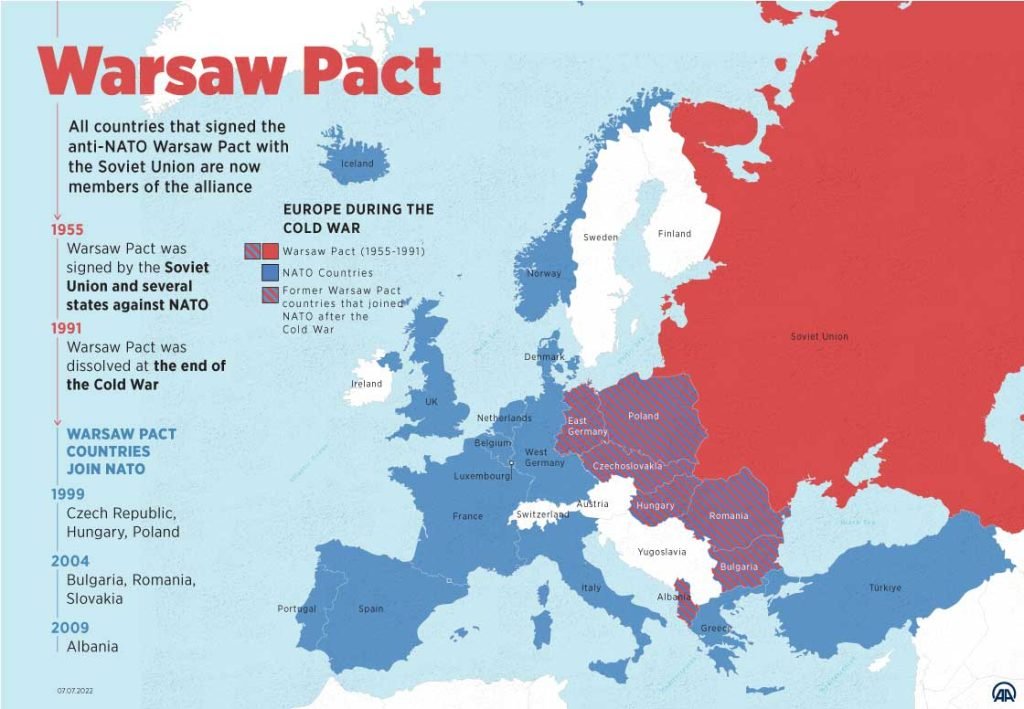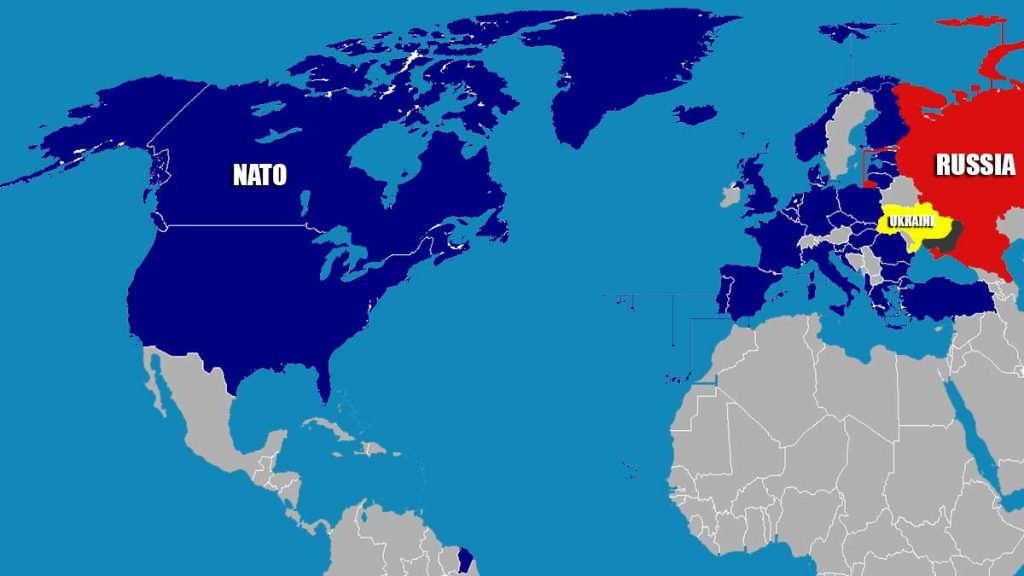Finland to Join NATO: A Dangerous Escalation…
Finland is set to join NATO, which will significantly increase tensions between Russia and the West. The decision comes in the wake of Russia’s invasion of Ukraine, which has prompted a rethink of European security arrangements.
Finland’s decision to join NATO triggered a heated debate about the military alliance’s expansionist policies and the implications of Finland’s membership for regional security. The move comes at a time when tensions between Russia and NATO are at an all-time high, and the world is grappling with the consequences of the ongoing conflict in Ukraine.
While Finland has maintained a policy of neutrality since World War II, its geographical location next to Russia has made it vulnerable to potential aggression. This has led to a long-standing debate within the country over whether to join NATO or not. Many see NATO membership as a necessary step to ensure the country’s security, while others fear it will only serve to escalate tensions with Russia.
NATO shiffting its mandate.

NATO was created in 1949 as a defensive alliance in the aftermath of World War II to deter Soviet aggression against Western Europe.
Member countries are located in North America and Europe, and their mandate is to work together to promote peace and security through political and military means. The founding members comprised of the United States, the United Kingdom, and ten European nations.
Those initial 12 members held the line across Europe when the Soviet Union was considered ‘The Threat’. The original 12 members faced the military might of the Warsaw Pact. that pact included 8 member states: Albania, Bulgaria, Czechoslovakia, East Germany (German Democratic Republic), Hungary, Poland, Romania, and the Soviet Union. The Soviet Union alone was made up of 15 republics spanning from the borders of Northern China to the centre of Europe, it included Ukraine.
After the fall of the Berlin wall and reunification, most people believed NATO’s job was done, in fact, Keir Starmer made that very argument. Instead, with the collapse of the Soviet Union in 1991, NATO has been transformed into a global military force with a mandate to intervene in conflicts outside its traditional sphere of influence. As NATO’s reach has expanded, so has its role as a guarantor of Western geopolitical interests, often at the expense of other countries sovereignty.
NATO Expansion: A History of Escalation
NATO’s expansion eastward has been a source of tension between Russia and the West for decades. The alliance was formed in 1949 as a bulwark against the Soviet Union, and its membership has since grown to include 30 countries.
The first wave of NATO expansion took place in the 1990s, after the collapse of the Soviet Union. The alliance welcomed former Soviet republics such as Poland, Hungary, and the Baltic states into its fold. This expansion was seen by Russia as a threat to its security, and led to increased tensions between the two sides.
The second wave of NATO expansion began in the early 2000s. The alliance invited seven countries, including Albania and Croatia, to join. This expansion was again seen by Russia as a provocation, and led to further tensions.
The most recent wave of NATO expansion began in 2014, after Russia’s annexation of Crimea. The alliance invited three former Soviet republics, Georgia, Ukraine, and Moldova, to join. This expansion was seen by Russia as a direct threat to its security, and led to a sharp deterioration in relations between the two sides.
NATO’s expansion eastward has been a major factor in the current crisis in Ukraine. Russia has repeatedly warned that NATO expansion is unacceptable, and has threatened to take military action if the alliance continues to expand eastward. The decision by Finland to join NATO is likely to further escalate tensions between Russia and the West.
Today, NATO has expanded from its initial 12 members to 31, spanning from North America to the borders of Russia. While the former threat of the Soviet Union no longer exists, NATO now directs its military power towards the perceived threat of a weakened Russia. This seems questionable as Russia is reportedly struggling to make headway against the rag-tag militia in Ukraine, fighting without air support or navy, a country relying on borrowed equipment and arms from Western countries a country relying solely on the bravery of its people. You really do have to ask, why does NATO need 31 countries to confront Russia?
The Risks of NATO Expansion

NATO’s expansion eastward is a dangerous escalation that could have far-reaching consequences. It is a move that should be deeply concerning to all those who value peace and security in Europe.
The most immediate risk of NATO expansion is that it could lead to a direct conflict between Russia and the West. Russia has repeatedly warned that NATO expansion is unacceptable, and has threatened to take military action if the alliance continues to expand eastward. The decision by Finland to join NATO is likely to further escalate tensions between Russia and the West, and could increase the risk of conflict.
Another risk of NATO expansion is that it could destabilize the region. NATO’s expansion into former Soviet republics has been seen by Russia as a threat to its security, and has led to increased tensions between the two sides. This could lead to further instability in the region, and could also increase the risk of conflict.
The decision of Finland’s centre-right party to join NATO is likely to fuel tensions with Russia, which has long viewed NATO’s eastward expansion as a threat to its national security. Moscow has warned that any attempt to bring Finland into NATO would be seen as a direct provocation and could trigger a military response.
NATO expansion is also a major obstacle to peace in Ukraine. Russia has repeatedly stated that its main security concern is NATO expansion eastward. The decision by Finland to join NATO is likely to further increase Russia’s security concerns, and could make it more difficult to reach a peaceful settlement to the conflict in Ukraine.
On the other hand, supporters of Finland’s NATO membership argue that it is a necessary step to protect the country’s security and sovereignty in an increasingly unstable world. Finland shares a 1,340-kilometre border with Russia, and Moscow’s annexation of Crimea and involvement in the conflict in Ukraine have raised concerns about its intentions in the region.
While it is important to acknowledge Finland’s right to make its own decisions about its security, it is equally important to examine the consequences of such a move. NATO’s expansionist policies have contributed to a growing sense of mistrust between Russia and the West, and have made Europe less stable and more dangerous. By joining NATO, Finland risks getting caught up in a geopolitical game that it may not be able to control, and becoming a pawn in a larger power struggle between Russia and the West.
The decision of Finland’s centre-right party to join NATO is a controversial one, and it remains to be seen what the long-term implications of this move will be. As the world continues to grapple with the consequences of the ongoing conflict in Ukraine, it is clear that military expansionism is not the answer to resolving complex geopolitical issues. It is time for a new approach to international relations, one that prioritises diplomacy, cooperation and mutual respect. Only then can we hope to achieve lasting peace and stability in an increasingly uncertain world.
Help Us Sustain Ad-Free Journalism
Sorry, I Need To Put Out the Begging Bowl
Independent Journalism Needs You
Our unwavering dedication is to provide you with unbiased news, diverse perspectives, and insightful opinions. We're on a mission to ensure that those in positions of power are held accountable for their actions, but we can't do it alone. Labour Heartlands is primarily funded by me, Paul Knaggs, and by the generous contributions of readers like you. Your donations keep us going and help us uphold the principles of independent journalism. Join us in our quest for truth, transparency, and accountability – donate today and be a part of our mission!
Like everyone else, we're facing challenges, and we need your help to stay online and continue providing crucial journalism. Every contribution, no matter how small, goes a long way in helping us thrive. By becoming one of our donors, you become a vital part of our mission to uncover the truth and uphold the values of democracy.
While we maintain our independence from political affiliations, we stand united against corruption, injustice, and the erosion of free speech, truth, and democracy. We believe in the power of accurate information in a democracy, and we consider facts non-negotiable.
Your support, no matter the amount, can make a significant impact. Together, we can make a difference and continue our journey toward a more informed and just society.
Thank you for supporting Labour Heartlands









